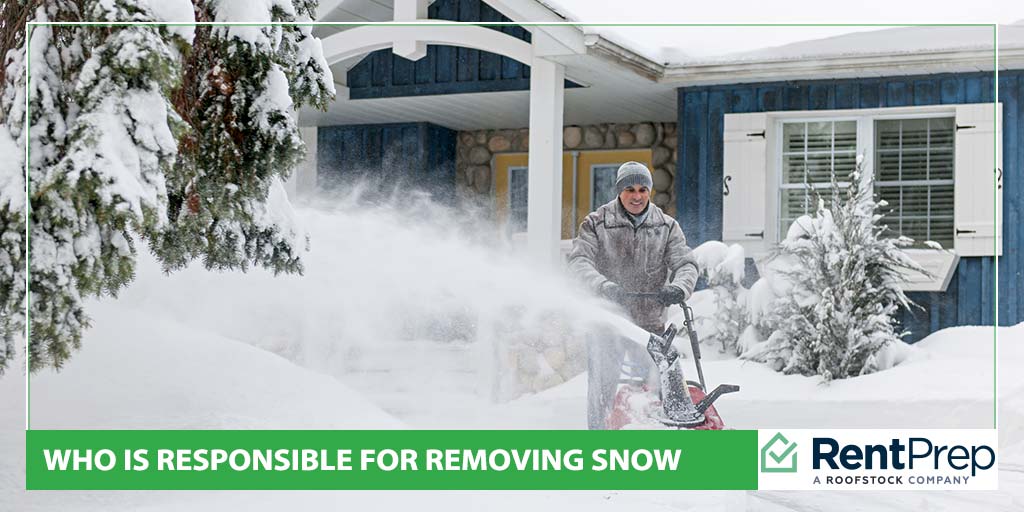
We discussed snow removal and who’s responsibility it is between the landlord and tenant on our podcast “RentPrep For Landlords”
Here’s the audio from that podcast.
When you rent out your property to tenants, there are so many details to go through that snow shoveling and snow removal may not be your top priority to discuss. However, it’s an area that causes many landlords and tenant disputes and could even lead to a potential lawsuit in the form of personal injury from a slip and fall.
If you aren’t sure who is responsible for shoveling snow, do some research to get to the bottom of it and then have a discussion with your tenant about who bears the responsibility for snow removal from the property.
State Snow Removal Laws
The responsibility for snow removal is often determined by state law, so a lot depends on where you live and where your property is. Many states, such as Massachusetts and Pennsylvania, specify that the owner of the property is responsible for snow removal has only so much time to remove snow. Often, the time frame is within 24 to 48 hours after the snow has stopped falling. State and municipal laws may also include specifics about snow removal that include not just shoveling or plowing, but also putting down salt, for example.
Other states, such as Ohio and Illinois, specify that the occupants of a rental property are responsible for snow removal, not the landlord. The laws usually outline a specific time limit for removing snow once it has stopped falling, again usually within 24 to 48 hours after the storm.
Municipal Ordinances on Snow Removal
Municipalities may also implement ordinances about snow removal that require either owners/landlords or tenants to clear snow despite what the state law does or doesn’t include. For example, the state of Illinois does not have any law requiring a property owner/landlord to remove snow and ice, however the city of Chicago does. So a landlord looking at the state law (occupant responsibility) would face penalties because of the city’s requirements (owner/landlord responsibility).
Some municipalities regulate snow removal responsibility based on the type of rental property. For example, the ordinance may state that for rental properties with three or more units, the landlord is responsible, while snow removal for a single family rental house is the responsibility of the tenant.
Snow Removal in the Lease Agreements
Proper wording on the lease agreement can help eliminate a lot of confusion on who is responsible for snow removal. The lease agreement should reflect the state or municipal laws on snow removal and clearly define any details concerning time and so forth. If your lease agreement doesn’t include language about snow removal responsibilities, create an addendum that expressly discusses it and make sure both of you sign it. Implement new language into the lease agreement upon renewal.
Do you live in the snow belt? How do you handle snow removal at your rental properties? Please share this article and let us know your snow removal situation in the comments below!

